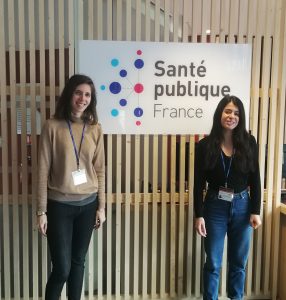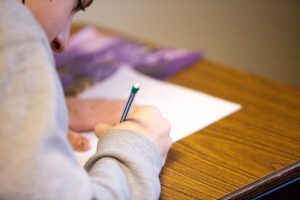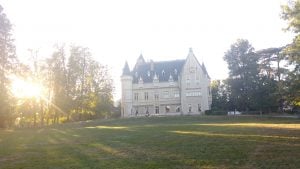
Staying at home for an extended period of time can be difficult, and healthy eating can be extra challenging due to the more relaxed “weekend atmosphere”. But worry not, because the Edulia team are here to share TIPS on how to make quality food time whilst in quarantine. The tips are presented in the infographics…

It has been just over a year now that I started my PhD within the Edulia project and last month I finished my last secondment. For 9 months I was working at the offices of Santé publique France (SPF) in Saint Maurice, close to Paris. There I was welcomed by the unit of Nutrition and…

The closing down of universities, research centres and schools across many countries in Europe, has of course influenced also the people involved in Edulia, and all beneficiary partners within the project are affect by the situation. Currently, many of the ESRs and their supervisors have to work from home in isolation as many other people.…

ESR3, Julia Sick at the University of Florence (Department of Agriculture, Food, Environment and Forestry) recently published her first paper “Children’s Self-Reported Reasons for Accepting and Rejecting foods” in the journal “Nutrients”. The paper is based on her Master Thesis which was conducted as a part of Taste for life (http://www.smagforlivet.dk/) and supervised by Annemarie Olsen…

Research involves data collection, this can be observations, interviews, questionnaires, measurements or a combination of several. In Edulia our 11 early stage researchers (ESRs) cover several scientific disciplines and a wide range of research methodology and study designs. Here are some numbers and fun facts to illustrate how Edulia involves much more people than the…

First of September, back to school! Well, this year I could share children’s excitement to go back to school as I was about to start my secondment at the Research center of Institut Paul Bocuse in Ecully (France) in September 2019. A new environment, a new team, and a new research topic, exhausting but definitely…

Ana Laura Velàzques (ESR11) recently published her first paper in “Food Research International”. A summary of the paper is given below, for the full paper please go to our publication page A sugar reduction up to 40% has a minimal effect on children’s liking of vanilla milk desserts Children are consuming too much sugar, and…

In my co-creation experiment where we wanted to develop a healthy snack idea with 10-12-year-old children I asked them to take photos of the snacks they usually eat. I learned that a normal snack has to be called “mellommåltid” instead of “snack” because the term “snack” implies unhealthiness in Norwegian. Another thing particular to Norway…

My first experiment had the aim to develop healthy snack ideas with 10-12-year-old children in a co-creation approach. For this we invited children to our focus group facilities at Nofima which must have been interesting but also somewhat intimidating for them. So, one challenge was to provide a framework to immerse them in the activities…

In August 2019, ESR8 Andreia had the opportunity to visit UdelaR (Universidad de la República) in Uruguay, aiming to collect data for the research project: “Factors influencing new parent’s healthy eating behaviours”. Now she is back to Aarhus University – Denmark to analyze the data obtained from 3 countries: Denmark, France and Uruguay. The data…










